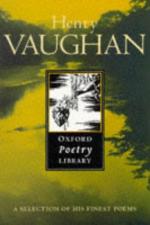|
This section contains 1,330 words (approx. 5 pages at 300 words per page) |

|
SOURCE: "The Silurist," in The Dial, Chicago, Vol. LXXXIII, No. 9, September, 1927, pp. 259-63.
Perhaps the most influential poet and critic to write in the English language during the first half of the twentieth century, Eliot is closely identified with many of the qualities denoted by the term Modernism: experimentation, formal complexity, artistic and intellectual eclecticism, and a classicist's view of the artist working at an emotional distance from his or her creation. He introduced a number of terms and concepts that strongly affected critical thought in his lifetime, among them the idea that poets must be conscious of the living tradition of literature in order for their work to have artistic and spiritual validity. In general, Eliot upheld values of traditionalism and discipline, and in 1928 he annexed Christian theology to his overall conservative world view. Of his criticism, he stated: "It is a by-product of my private poetry-workshop...
|
This section contains 1,330 words (approx. 5 pages at 300 words per page) |

|


